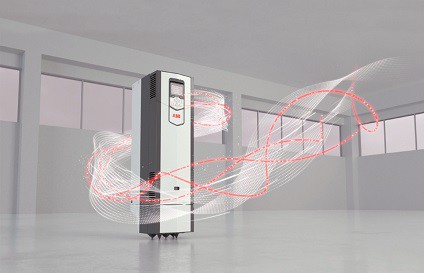Advertorial - Harmonics and HVAC

ABB’s Carl Turbitt explains how harmonic currents can impact HVAC systems – and what can be done about them.
The development of variable speed drives (VSDs) has enabled significant reductions in energy consumption and carbon emissions in buildings. But to achieve the greatest energy savings, the VSD is better suited to being integrated into the BMS for smarter and more efficient building management control. Modern ABB drives support all common building automation protocols, including BACnet, allowing seamless integration.
However, this can introduce a new challenge. VSDs save energy by controlling motor speed more effectively, but they can also contribute towards electromagnetic noise. This noise is called harmonic distortion, and it can be a big problem in any electrical network. It can affect efficiency, increasing the total current and generating higher losses as a result. It can also interfere with other equipment, such as lighting, monitors and a host of other systems on the network and result in erratic behaviour like trips, overheating and a reduction in a device’s power factor. VSDs used in HVAC applications must therefore be selected carefully.
Harmonics can be mitigated up to a point, for instance by adding a method of cooling and over-sizing equipment, however the amount of mitigation required can be substantial, adding significant cost to the application, as well as additional space requirements.

Arguably a more effective approach is to prevent harmonics from happening in the first place. ABB’s ultra-low harmonic (ULH) drive solutions limit current harmonics to less than five percent. In contrast, the current from a conventional 6-pulse drive technology with passive harmonic mitigation components has a harmonic content of around 40 percent, resulting in 16 percent more current losses compared to an ULH drive. By employing ULH drives, the issues created by harmonic currents can be significantly mitigated, allowing your HVAC systems to run efficiently.








